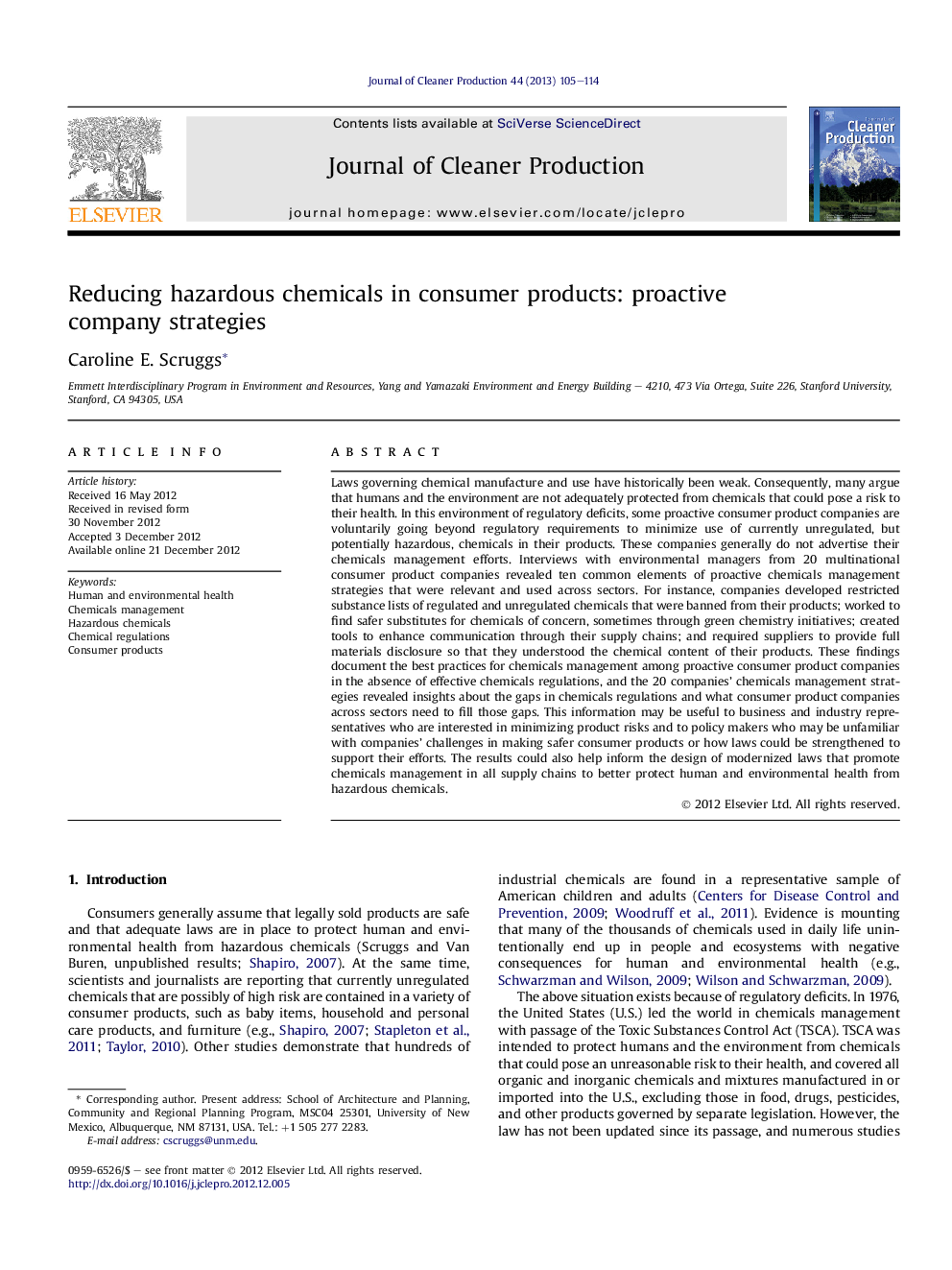| Article ID | Journal | Published Year | Pages | File Type |
|---|---|---|---|---|
| 1745566 | Journal of Cleaner Production | 2013 | 10 Pages |
Laws governing chemical manufacture and use have historically been weak. Consequently, many argue that humans and the environment are not adequately protected from chemicals that could pose a risk to their health. In this environment of regulatory deficits, some proactive consumer product companies are voluntarily going beyond regulatory requirements to minimize use of currently unregulated, but potentially hazardous, chemicals in their products. These companies generally do not advertise their chemicals management efforts. Interviews with environmental managers from 20 multinational consumer product companies revealed ten common elements of proactive chemicals management strategies that were relevant and used across sectors. For instance, companies developed restricted substance lists of regulated and unregulated chemicals that were banned from their products; worked to find safer substitutes for chemicals of concern, sometimes through green chemistry initiatives; created tools to enhance communication through their supply chains; and required suppliers to provide full materials disclosure so that they understood the chemical content of their products. These findings document the best practices for chemicals management among proactive consumer product companies in the absence of effective chemicals regulations, and the 20 companies' chemicals management strategies revealed insights about the gaps in chemicals regulations and what consumer product companies across sectors need to fill those gaps. This information may be useful to business and industry representatives who are interested in minimizing product risks and to policy makers who may be unfamiliar with companies' challenges in making safer consumer products or how laws could be strengthened to support their efforts. The results could also help inform the design of modernized laws that promote chemicals management in all supply chains to better protect human and environmental health from hazardous chemicals.
► Laws governing chemical manufacture and use have historically been weak. ► 20 proactive consumer product companies minimize unregulated hazardous chemical use. ► 10 common elements of their proactive strategies are useful across business sectors. ► Model for action for other companies concerned about chemicals-related product risk. ► Companies' experiences highlight regulatory gaps and point to possible improvements.
